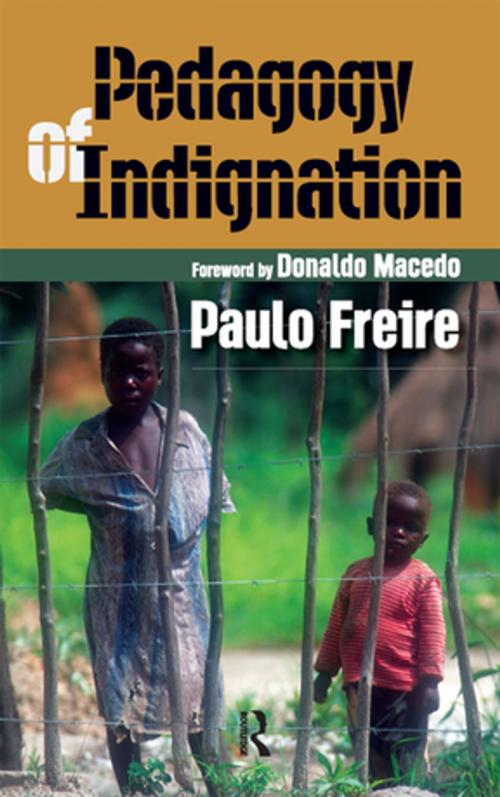Pedagogy of Indignation
Nonfiction, Reference & Language, Education & Teaching, Social & Cultural Studies, Political Science| Author: | Paulo Freire | ISBN: | 9781317254423 |
| Publisher: | Taylor and Francis | Publication: | November 17, 2015 |
| Imprint: | Routledge | Language: | English |
| Author: | Paulo Freire |
| ISBN: | 9781317254423 |
| Publisher: | Taylor and Francis |
| Publication: | November 17, 2015 |
| Imprint: | Routledge |
| Language: | English |
This is the first English translation of the last book written by Paulo Freire. Pedagogy of Indignation delves ever deeper into the themes that concerned him throughout his life. The book begins with a series of three deeply moving reflective "pedagogical letters" to the reader about the role of education for one's development of self. He also speaks directly to the reader about the relationship to risk in one's life and he delves deeper than before into the daily life tensions between freedom and authority. Building on these interconnected themes, Freire sharpens our sense of the critical faculties of children and how a teacher may work with children to help them realize their potential intellectually and as human beings. Subsequent chapters explore these topics in relation to the wider social world: the social constitution of the self in the work of educators; critical citizenship; and the necessity of teaching "from a position" about the world that goes beyond literacy programs to include the legacy of colonialism in peoples' resistance movements today. The book's poignant interludes, written by Ana Maria Araujo Freire, reveal Paulo's thoughts about the content of this book as he was completing it during the last weeks and days of his life.
This is the first English translation of the last book written by Paulo Freire. Pedagogy of Indignation delves ever deeper into the themes that concerned him throughout his life. The book begins with a series of three deeply moving reflective "pedagogical letters" to the reader about the role of education for one's development of self. He also speaks directly to the reader about the relationship to risk in one's life and he delves deeper than before into the daily life tensions between freedom and authority. Building on these interconnected themes, Freire sharpens our sense of the critical faculties of children and how a teacher may work with children to help them realize their potential intellectually and as human beings. Subsequent chapters explore these topics in relation to the wider social world: the social constitution of the self in the work of educators; critical citizenship; and the necessity of teaching "from a position" about the world that goes beyond literacy programs to include the legacy of colonialism in peoples' resistance movements today. The book's poignant interludes, written by Ana Maria Araujo Freire, reveal Paulo's thoughts about the content of this book as he was completing it during the last weeks and days of his life.















